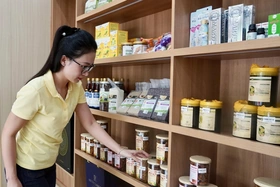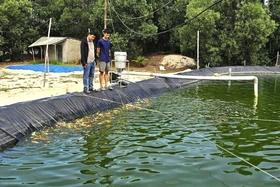xq/Do1lXIOG6pyTDrMOs4bueVmjhu4rEg+G7i+G6pzJW4buoSeG7iSThuqnhuqNX4buKw63Eg1fEg+G6qeG7izLhuqPDrSThu4syw6xX4bqnxIPDtTLDrOG7i+G6qyDhuqVXMDLDtTLhuqfhuqto4bqtMuG6qeG7i1fDtMSD4buLw6NXMuG6qcO1xIPDreG6q+G6qeG6rTLhuqnhu4sk4bqnV2jDreG6q+G7izIg4buLxIPhuqvhuqnGry/Do1nhu6jGr2hXIOG6pyTDrMOs4bueVmjDgzIkMFbhu6jhu4rDozJXMDLDtTLhuqfhuqto4bqtMuG6qeG7i1fhuqvhuqFX4bqnxIPDtTLDrOG7i+G6qyDhuqVXJOG6qTBXaOG6q+G7ieG6p+G7i8Ot4buTV+G6oSTDreG6rcSD4bqp4bqjV8SD4bqpV0nhu4k/4bqp4bqjV+G7isOt4bq3V0jDreG6q8O1xIPhuqkgMlfDoyTDrFciw63huqvhu4nhuqPDo+G7i1fDrMSD4bqj4bqpxIPhuqHEgyAk4bqp4buLVzIg4bqr4bqp4bqr4bqtxIMgVyIy4bqpMuG6ocSD4buLw6xX4buL4bqrV+G7i8OjMlfhuqfhuqsgJOG6p1do4bqraOG7ieG6pyThu4vEg+G6q+G6qcOZV8OD4bqrw7Qyw7Uyw63Dmlcy4bqpw7XEg8Ot4bqr4bqp4bqtMuG6qeG7iyThuqdXaOG6q+G6p+G6p+G7ieG7i8SD4bqr4bqpVyAk4buJw6wyMFci4buTV8O0JMOs4buLMlfhuqHDreG6q+G6rVfhu4vDozLDrDJXJCDhu4vEg8O1xIPhu4vEgzLDrFfDoyTDrFciMiDhuqvhuq0yVyRXaMOtMsOsw6zEg+G6qeG6o1cg4bqr4bqpIDLDreG6qVfhuqHhuqvDrVfDrTLDrMSDMDLhuqnhu4vDrMOZV+G7isOjMsOtMuG6oeG6q8OtMsOaV+G7i+G6q1ckIMOjxIMyw7UyV8Os4buJw6zhu4skxIPhuqkkIuG6pzJXMDLDtTLhuqfhuqto4bqtMuG6qeG7i1ck4bqpMFfhuq0k4buRxIPhuq3Eg3oyVyIy4bqpMuG6ocSD4buLw6zDmlfEg+G7i1fEg8OsVzLDrMOsMuG6qeG7i8SDJOG6p1fhu4vhuqtXMuG7kWgk4bqpMFfhuqfEg8O1MsOs4buL4bqrIOG6pVfhuqEkw63huq3Eg+G6qeG6o1fDtMOjxIPhuqcyVzLhuqnDrOG7icOtxIPhuqnhuqNXMuG6oeG6oTIg4buLxIPDtTJXMuG6qcO1xIPDreG6q+G6qeG6rTLhuqnhu4sk4bqnV2jDreG6q+G7izIg4buLxIPhuqvhuqlX4bqtMiTDrOG7icOtMsOsw5nGry9o4buoxq9oVyDhuqckw6zDrOG7nlZo4bux4bqrMOG7k1bhu6jhu53DrFfhuqvhuqFX4bqsJOG7k1fDnVjDneG7tMOaV0nhu4kk4bqp4bqjV+G7isOtxINXSMOt4bqrw7XEg+G6qSAyV8OjJMOsVyRX4buL4bqr4buLJOG6p1fhuqvhuqFXw51Zw5rDneG7uFhXIuG7ieG6oeG6oSThuqfhuqsyw6zDmlfhu7jDncOaWOG7tOG7slcgJOG7i+G7i+G6pzLDmlfDneG7suG7ssOaPcOdI1doxIPhuqPDrMOaVyThuqkwV+G7ssOaPcOdw53DmlhYWFdo4bqr4buJ4bqn4buLw63hu5PDmVfhu4rDozJXaMOt4bqrw7XEg+G6qSAyV8Oj4bqrw6zhu4vDrFfhu7g9QFfhuqfEg8O1MsOs4buL4bqrIOG6pVck4bqpMFdo4bqr4buJ4bqn4buLw63hu5NX4bqhJMOt4bqtw6zDmlfEg+G6qSDhuqfhu4kwxIPhuqnhuqNXw53hu7JX4bqnJMOt4bqjMi3DrCAk4bqnMlfhuqEkw63huq3DrMOaV8OdWD1X4bqtMjDEg+G7ieG6rS3DrCAk4bqnMlfhuqEkw63huq3DrMOaVyThuqkwV+G7tOG7uOG7tlfDrOG6rSThuqfhuqctw6wgJOG6pzJX4bqhJMOt4bqtw6zDmcavL2jhu6jGr2hXIOG6pyTDrMOs4bueVmjhu7Hhuqsw4buTVuG7qOG6qDIkw63huqfhu5NXWVhYV+G6q+G6oVfhu4vDozLDrDJX4bqhJMOt4bqtw6xX4buJw6wyV8OjxIPhuqPDoy3hu4syIMOjVyRoaOG6p8SDICThu4vEg+G6q+G6qcOsVyThuqkwVyDhuqvhuqfhuqckIuG6q8OtJOG7izJXw7TEg+G7i8OjVyLhu4nDrMSD4bqpMsOsw6wyw6zDmVfhuqzhuqswMsOt4bqpV+G6oSTDreG6rcSD4bqp4bqjV+G6rTLhu4vDo+G6qzDDrMOaV8Os4buJIMOjVyTDrFfDo8SD4bqjw6Mt4buTxIMy4bqnMFciw60yMjDDrMOaVyDhuqfhuqvDrDIwV8Oj4bqr4buJw6zEg+G6qeG6o1fDrOG7k8Os4buLMuG6rcOsw5pXJOG6qTBXJOG7ieG7i+G6q+G6rSThu4syMFdow63huqsgMsOsw6wyw6xX4bqh4bqrw61X4bqhMjIwxIPhuqnhuqPDmlfDtCThu4syw63Eg+G6qeG6o8OaVyThuqkwVzDEg8OsxIPhuqnhuqEyIOG7i8SD4bqp4bqjw5pXJMOtMlciMiDhuqvhuq3Eg+G6qeG6o1fEg+G6qSDDrTIkw6zEg+G6qeG6o+G6p+G7k1cg4bqr4bqt4bqt4bqr4bqpw5nGry9o4buoxq9oVyDhuqckw6zDrOG7nlZo4bux4bqrMOG7k1bhu6jGr8SD4bqt4bqjVyDhuqckw6zDrOG7nlbEg+G7rTLhuqnhu4syw61WV8Osw60g4bueVsOj4buL4buLaMOsVC8vIMOZIiThuqtp4buJJOG6qeG6o+G7i8OtxIPDmcO14bqpLzAyw6zhuqXhu4vhuqtoL+G6qTLDtMOsL8Od4bu0w53hu7YvWVnhu7Qw4buyWT3hu7RZ4bu04buy4buL4bu4WFnhu7bhuqfDnS0gw6Mk4bqpLeG6qeG7ieG6q8SDLVnDneG7si0g4bqraOG7k8OZw7QyImhWVyThuqfhu4vhu55WSeG7iSThuqnhuqNX4buKw63Eg1fEg+G6qeG7izLhuqPDrSThu4syw6xX4bqnxIPDtTLDrOG7i+G6qyDhuqVXMDLDtTLhuqfhuqto4bqtMuG6qeG7i1fDtMSD4buLw6NXMuG6qcO1xIPDreG6q+G6qeG6rTLhuqnhu4sk4bqnV2jDreG6q+G7izIg4buLxIPhuqvhuqlWVy/hu6jGry9o4buoxq8wxIPDtVcg4bqnJMOsw6zhu55W4bqh4bqnMuG7kS3DrMOjw63Eg+G6qeG6pS1YV+G6oeG6pzLhu5FX4bqh4bqnMuG7kS0g4bqr4bqnV8OtMuG6pyThu4vEg8O1MlfEg+G7izLhuq3DrC0y4bqpMFbhu6jGrzDEg8O14buoxq8wxIPDtVcg4bqnJMOsw6zhu55WaOG7iy1Yw5nhu7ZXw6Lhu4nEgyAyVGjhu4stWFbhu6jGrzDEg8O1VyDhuqckw6zDrOG7nlbhuqPEg3rhuq3huqstIuG6q+G7iy0kw7Uk4buLJMOtV+G6oeG6pzLhu5FXw6Mt4bu4V8O0LeG7uFfEg+G7izLhuq3DrC0gMuG6qeG7izLDrVfDouG7icOs4buLxIPhuqHhu5MtIDLhuqnhu4syw61X4bqrw7Uyw63huqHhuqfhuqvDtC3Do8SDMDAy4bqpV8Ot4bqr4buJ4bqpMDIwLeG6oeG7ieG6p+G6p1fDouG7icSDIDJUw6MtI1fDouG7icSDIDJUw7QtI1bhu6jGr2hXIOG6pyTDrMOs4bueVmjhu60kaOG7i8SD4bqr4bqpVuG7qOG7nVfhuqfEg8O1MsOs4buL4bqrIOG6pVfhuqEkw63huq1XxIPhuqlX4bqkw6Phuqvhuq1XxILDmlfhuqTDreG6q+G6qeG6o1fhuqThuqck4bqp4bqjV+G7i+G6q8O04bqpV+G7puG7ryThuqXDreG6q+G6qeG6o1cwxIPDrOG7i8OtxIMg4buLxajDmlfEg8OsV8OsxIPhu4vhu4kk4buLMjBXw7TEg+G7i8OjxIPhuqlXJFfDrTLDrMSDMDLhuqnhu4vEgyThuqdXJMOtMiRXJOG6qTBXMOG6qzLDrFfhuqnhuqvhu4tX4bqtMjLhu4tXMuG6qcO1xIPDreG6q+G6qeG6rTLhuqnhu4sk4bqnV8OsJOG6qcSD4buLJOG7i8SD4bqr4bqpV8Os4buLJOG6qTAkw60ww6zDmVdIw6Phuqvhu4vhuqtUV8OMw5nDg8avL2jhu6jGry8wxIPDteG7qMavLzDEg8O14buoxq8vMMSDw7Xhu6jGry8wxIPDteG7qMavaFcg4bqnJMOsw6zhu55WaOG7seG6qzDhu5NW4buow5Qkw6zhu4syV+G7i8OtMiThu4vhuq0y4bqp4buLV8Os4bqr4bqn4buJ4buLxIPhuqvhuqnDrFfhuqfEg+G6pTJXIsSD4bqr4bqjJMOsV8Os4buTw6zhu4sy4bqtw6xXJOG6qTBXIsSD4bqr4bqn4bqr4bqjxIMgJOG6p1ciMjAwxIPhuqnhuqNXJMOtMlciMsSD4bqp4bqjVzLhu5FoJOG6qTAyMMOaV8SD4bqtaMOt4bqrw7XEg+G6qeG6o1dow63huqsw4buJIOG7i1dp4buJJOG6p8SD4buL4buTw5pXMiDhuqvhuqnhuqvhuq3EgyBXMuG6oeG6ocSDIMSDMuG6qSDhu5PDmlck4bqpMFcwxIPDrDIkw6wyV8OsJOG6oTLhu4vhu5PDmcavL2jhu6jGr2hXIOG6pyTDrMOs4bueVmjhu7Hhuqsw4buTVuG7qMOD4bqrw7Qyw7Uyw63DmlfEg+G6qcOjMsOtxIPhu4syMFcwJOG7iyRXJOG6qTBXJOG6qSThuqfhu5PDrMSDw6xX4bqr4bqhV8O0JMOs4buLMsO0JOG7izLDrVfDrCThuq1o4bqnMsOsV+G6ocOt4bqr4bqtV+G6p8SDw7Uyw6zhu4vhuqsg4bqlV+G6oSTDreG6rcOsVyLhu5NXw60y4bqnMsO1JOG6qeG7i1ck4buJ4buLw6PhuqvDrcSD4buLxIMyw6xXw6zDo+G6q8O0V+G7i8OjJOG7i1fhuq3huqvDrOG7i1fhuqEkw63huq3DrFcy4buRIDIyMFfhu4vDozJXw60y4bqj4buJ4bqnJOG7i+G6q8Ot4buTV8Os4buLJOG6qTAkw60ww6xXw6wy4buLVyLhu5NXSeG7rcOV4bqoV+G7uMOdVMOdWFnhu7gv4bux4buK4bqo4bqs4buKVyThuqkwV0nhu63DleG6qFfhu7RYVMOdWFlZL+G7seG7iuG6qOG6rOG7isOZV8OUw6PEg+G6pzJX4buLw6MyVyThuqkk4bqn4buTw6zEg8OsV+G6q+G6oVckxIPDrVcy4bqtxIPDrMOsxIPhuqvhuqnDrFfhuqHDreG6q+G6rVdZWFfhuqfEg8O1MsOs4buL4bqrIOG6pVfhuqEkw63huq3DrFfDrTLDtTIk4bqnw6xX4buLw6Mk4buLV+G6qMOD4buyVyThuqkwV8ODw53DjFfhuqcyw7Uy4bqnw6xXJMOtMlfDtMSD4buLw6PEg+G6qVfhu4vDozJXaDLDreG6rcSDw6zDrMSDIuG6pzJX4bqnxIPhuq3Eg+G7i8OsV+G6q+G6oVdJ4butw5XhuqhXWOG7tlTDnVjDneG7si/hu7Hhu4rhuqjhuqzhu4rDmlfhu4vDozJX4bqrMOG6q8OtV+G6ocOt4bqr4bqtV+G7i8OjMsOsMlfhuqEkw63huq3DrFfDrOG7i8SD4bqn4bqnV8OsaMOtMiQww6zDmlcgJOG7icOsxIPhuqnhuqNXMMSDw6wg4bqr4bqt4bqh4bqrw63hu4tX4buL4bqrV+G6qTIkw60i4buTV8OtMsOsxIMwMuG6qeG7i8SDJOG6p1ckw60yJMOsw5nGry9o4buoxq9oVyDhuqckw6zDrOG7nlZo4bux4bqrMOG7k1bhu6jhu4rDozJX4bqh4bqr4buJ4bqnV+G6qzDhuqvDrVcgJOG6qVfhu4vDrSTDtTLhuqdX4bqrw7Uyw61XJFfDrSQwxIPhu4nDrFfhuqvhuqFX4bqt4bqrw60yV+G7i8OjJOG6qVdZV+G6peG6rcOaV+G6pzIkMMSD4bqp4bqjV+G7i+G6q1cg4bqr4bqtaOG6pyTEg+G6qeG7i8OsV+G6ocOt4bqr4bqtV8OtMsOsxIMwMuG6qeG7i8OsVzLDtTLhuqlXxIPhuqFX4buLw6MyV+G6oSTDreG6rcOsVyQww6Myw60yV+G7i+G6q1fhu4vDozJXMMSDw6zhu4sk4bqpIDJXw60y4bqj4buJ4bqnJOG7i8SD4bqr4bqpw6xXw6xoMiDEg+G6ocSDMjBXxIPhuqlX4butxIPDrSDhu4nhuqckw61X4bqo4bqrw5lXw53hu7Ivw51YWT0v4buK4buKLeG7seG6qOG6qEjhu4rhuqjhu4pXIuG7k1fhu4vDozJX4bqsxIPhuqnEg8Os4buLw63hu5NX4bqr4bqhV+G7neG6o8OtxIMg4buJ4bqn4buL4buJw60yVyThuqkwV8ON4buJw60k4bqnV+G7rzLDtTLhuqfhuqto4bqtMuG6qeG7i8OZV8SC4bqpV8OdWMOd4buyVyThuqkwV+G7i8OjMlfhuqHEg8Otw6zhu4tX4bqhMsO0V+G6reG6q+G6qeG7i8Ojw6xX4bqr4bqhV8OdWMOd4bu0w5pX4bqtJOG6qeG7k1fDrTLDrMSDMDLhuqnhu4vDrFfDoyTDtTJXw60yaOG6q8Ot4buLMjBXMuG6qcO1xIPDreG6q+G6qeG6rTLhuqnhu4sk4bqnV2jhuqvhuqfhuqfhu4nhu4vEg+G6q+G6qVfEg8Osw6zhu4kyw6xXw60y4bqnJOG7izIwV+G7i+G6q1fhuqfEg8O1MsOs4buL4bqrIOG6pVfhuqEkw63huq3Eg+G6qeG6o1fhu4vhuqtX4buLw6MyV8OtMuG6pzLDtSThuqnhu4tXJOG7ieG7i8Oj4bqrw63Eg+G7i8SDMsOsw5nGry9o4buoxq9oVyDhuqckw6zDrOG7nlZo4bux4bqrMOG7k1bhu6jhuqjhuqvhu4skIuG6p+G7k8OaV+G7i8OjMlfhu4nhuqlo4bqnMiTDrCThuqnhu4tX4bqrMOG6q8Otw6xX4bqhw63huqvhuq1XaMSD4bqjV+G6oSTDreG6rcOsV8SD4bqpV+G7rSThuq1X4bqm4bqrw5pXw4Phu4nhuqvhuqnhuqNXw4Phuqskw5pXw4MkxINX4bqmJOG6qeG6o8OaVyThuqkwV8OVxIPhuqnDo1fhuqbEg+G6qcOjVzDEg8Os4buLw63EgyDhu4vDrFfDoyTDtTJXIjIy4bqpV2jDreG6qyLhuqcy4bqtJOG7i8SDIMOZV+G7isOjMlcgJOG7icOsMlfEg8OsV+G6q+G6oeG7izLhuqlX4buLw6MyV8OsaOG6q+G6qeG7iyThuqky4bqr4buJw6xXJOG6qTBX4buJ4bqpw60y4bqj4buJ4bqnJOG7izIwVzAyw7Uy4bqn4bqraOG6rTLhuqnhu4tX4bqr4bqhV+G6rSThuqnhu5NX4bqnxIPDtTLDrOG7i+G6qyDhuqVX4bqhJMOt4bqtw6zDmlfhuqckIOG6pcSD4bqp4bqjVyDhuqvhuqvDrTDEg+G6qSThu4syMFfEg+G6qcO1MsOs4buL4bqtMuG6qeG7i8OZV+G7neG6p+G7i8Oj4bqr4buJ4bqjw6NXw6zhuqvhuq0yVzLhuqnDtcSDw63huqvhuqnhuq0y4bqp4buLJOG6p1fhu4vDrTIk4buL4bqtMuG6qeG7i1fhuq0yJMOs4buJw60yw6xXJMOtMlfEg+G6qVdo4bqnJCAyw5pX4buLw6MyV+G7izIgw6PhuqnhuqvhuqfhuqvhuqPhu5NXMOG6qzLDrFfhuqnhuqvhu4tX4bqtJOG7iyDDo1fhu4vDozJXJCDhu4vhu4kk4bqnV8OsICThuqcyV+G6q+G6oVfhu4vDozJX4bqhJMOt4bqtw6zDmlfhuqcyJDDEg+G6qeG6o1fhu4vhuqtX4bqrw7Uyw63huqfhuqskMMOsw5lXd+G6qcO1xIPDreG6q+G6qeG6rTLhuqnhu4sk4bqnV+G7i8OtMiThu4vhuq0y4bqp4buLVzLhuqHhuqHhuqvDreG7i8OsVyTDrTJX4bqr4bqh4buLMuG6qVfEg+G6qTLhuqHhuqEyIOG7i8SDw7UyVyThuqkwVzDhuqtX4bqp4bqr4buLV+G6rTIy4buLV8OtMuG6o+G7ieG6pyThu4vhuqvDreG7k1fDrOG7iyThuqkwJMOtMMOsw5lX4but4bqr4bqtaOG6p8SDJOG6qSAyV8O0xIPhu4vDo1fhu4vDozJXMuG6qcO1xIPDreG6q+G6qeG6rTLhuqnhu4sk4bqnV2jDreG6qyAyMOG7icOtMsOsV+G6q+G7ieG7i+G6p8SD4bqpMjBXxIPhuqlX4buLw6MyV8OdWMOdWFd34bqpw7XEg8Ot4bqr4bqp4bqtMuG6qeG7iyThuqdXSMOt4bqr4buLMiDhu4vEg+G6q+G6qVfhuqYkw7RXw60y4bqtJMSD4bqpw6xX4bqnxIPhuq3Eg+G7izIwVyThuq3huqvhuqnhuqNX4bqnxIPDtTLDrOG7i+G6qyDhuqVXJOG6qTBXaOG6q+G7ieG6p+G7i8Ot4buTV+G6oSTDreG6rcOsw5nGry9o4buoxq9oVyDhuqckw6zDrOG7nlZo4bux4bqrMOG7k1bhu6jhuqwk4bqp4buTV+G6p8SDw7Uyw6zhu4vhuqsg4bqlVyThuqkwV2jhuqvhu4nhuqfhu4vDreG7k1fhuqEkw63huq1X4bqrw7Thuqkyw63DrFfDrOG7i8SD4bqn4bqnV8O1xIMyw7RX4buLw6MyV2jDrTJoJMOtJOG7i8SD4bqr4bqpV+G6q+G6oVcy4bqpw7XEg8Ot4bqr4bqp4bqtMuG6qeG7iyThuqdXMOG6qyDhu4nhuq0y4bqp4buLJOG7i8SD4bqr4bqpVyTDrFfhuq0yw60yVyQw4bqtxIPhuqnEg8Os4buLw60k4buLxIPDtTJX4buLJMOs4bqlw6zDmlfDtMSD4buLw6NX4bqnxIPhu4vhu4vhuqcyV8OtMuG6pzLDtSThuqkgMlfhu4vhuqtXaMOtJCDhu4vEgyAk4bqnV8SD4bqtaOG6pzLhuq0y4bqp4buLJOG7i8SD4bqr4bqpw5lX4buKw6Myw6wyV+G6oSTDreG6rcOsVyTDrTJX4bqr4bqh4buLMuG6qVfDrCAk4buL4buLMsOtMjDDmlfEg+G6qeG7izLDrcOsaDLDrcOsMjBXJOG6reG6q+G6qeG6o1fDrTLDrMSDMDLhuqnhu4vEgyThuqdXJMOtMiTDrMOaVyThuqkwV8OjJMO1MlfhuqfEg+G6rcSD4buLMjBX4bqnJOG6qTDDmlfhuq0k4bqlxIPhuqnhuqNXxIPhu4tXIMOjJOG6p+G6pzLhuqnhuqPEg+G6qeG6o1fhu4vhuqtXIuG7icSD4bqnMFckMDJp4buJJOG7izJXw7Qkw6zhu4syV+G7i8OtMiThu4vhuq0y4bqp4buLV+G6oSQgxIPhuqfEg+G7i8SDMsOsw5lX4buKw6PEg8OsV8OsxIPhu4vhu4kk4buLxIPhuqvhuqlXIOG6q+G6rWjhuqfEgyAk4buLMsOsVzLhuqnDtcSDw63huqvhuqnhuq0y4bqp4buLJOG6p1fhuq0k4bqpJOG6ozLhuq0y4bqp4buLVzLhuqHhuqHhuqvDreG7i8Osw5nGry9o4buoxq9oVyDhuqckw6zDrOG7nlZo4bux4bqrMOG7k1bhu6jhu4rDozJX4bqhw60yaeG7iTLhuqkg4buTV+G6q+G6oVcy4bqpw7XEg8Ot4bqr4bqp4bqtMuG6qeG7iyThuqdXxIPhuqnDrGgyIOG7i8SD4bqr4bqpw6xXJOG6qTBXw7XEg+G6q+G6pyThu4vEg+G6q+G6qVcy4bqp4bqh4bqrw60gMuG6rTLhuqnhu4tXIuG7k1ck4buJ4buLw6PhuqvDrcSD4buLxIMyw6xXxIPDrFfDrOG7i8SD4bqn4bqnV8SD4bqpw6zhu4nhuqHhuqHEgyDEgzLhuqnhu4vDmlfhuqckIOG6pcSD4bqp4bqjVyRXMDLhu4syw63DrTLhuqnhu4tXMuG6oeG6oTIg4buLw5lXw5TDo8SD4bqnMlckw7Qkw60y4bqpMsOsw6xX4bqr4bqhVzLhuqnDtcSDw63huqvhuqnhuq0y4bqp4buLJOG6p1dow63huqvhu4syIOG7i8SD4bqr4bqpV8SD4bqpV+G6p8SDw7Uyw6zhu4vhuqsg4bqlV+G6oSTDreG6rcSD4bqp4bqjV8OjJMOsV8SD4bqtaMOt4bqrw7UyMMOaV8OsxIPhuqPhuqnEg+G6ocSDICThuqnhu4tXxIPDrMOs4buJMsOsV8OtMuG6rSTEg+G6qcOZxq8vaOG7qMavaFcg4bqnJMOsw6zhu55WaOG7seG6qzDhu5NW4buow4zhuqvhuq0yV+G6oSTDreG6rVfhuqvDtOG6qTLDrcOsVzDhuqtX4bqp4bqr4buLV+G6oeG7ieG6p+G6p+G7k1fDrTIg4bqr4bqj4bqpxIN6Mlfhu4vDoyThu4tXMiDhuqvhuqnhuqvhuq3EgyBXMDLDtTLhuqfhuqto4bqtMuG6qeG7i1fhuq3hu4nDrOG7i1fhuqPhuqtXw6Mk4bqpMC3Eg+G6qS3DoyThuqkwV8O0xIPhu4vDo1cy4bqpw7XEg8Ot4bqr4bqp4bqtMuG6qeG7iyThuqdXaMOt4bqr4buLMiDhu4vEg+G6q+G6qcOaVyThuqkwV+G7i8OjMuG7k1cw4bqrV+G6qeG6q+G7i1fDrcSD4bqj4bqrw63huqvhu4nDrOG6p+G7k1ckMMOjMsOtMlfhu4vhuqtX4buLw6MyV8OdWMOdWFd34bqpw7XEg8Ot4bqr4bqp4bqtMuG6qeG7iyThuqdXSMOt4bqr4buLMiDhu4vEg+G6q+G6qVfhuqYkw7TDmcavL2jhu6jGr2hXIOG6pyTDrMOs4bueVmjhu7Hhuqsw4buTVuG7qOG6qOG6o+G7ieG7kzLhuqlXw4Phu4nhu4lX4bqoJOG6rcOaV+G7rzJo4buJ4buL4buTV+G7r8SDw60yIOG7i+G6q8OtV+G6q+G6oVfhu4vDozJX4buvMmgkw63hu4vhuq0y4bqp4buLV+G6q+G6oVfhuqgk4buL4buJw60k4bqnV8ONMsOs4bqr4buJw60gMsOsVyThuqkwV3fhuqnDtcSDw63huqvhuqnhuq0y4bqp4buLw5pXw6zhu4sk4buLMjBX4buLw6Mk4buLV+G6p8SDw7Uyw6zhu4vhuqsg4bqlVyThuqkwV2jhuqvhu4nhuqfhu4vDreG7k1fhuqEkw63huq3Eg+G6qeG6o1ckIOG7i8SDw7XEg+G7i8SDMsOsV8OjJMO1MlcgJOG7icOsMjBXMuG6qcO1xIPDreG6q+G6qeG6rTLhuqnhu4sk4bqnV2jhuqvhuqfhuqfhu4nhu4vEg+G6q+G6qVfEg+G6qVfDrOG6q+G6rTJX4bqhJMOt4bqtw6xXw7TEg+G7i8OjxIPhuqlX4buLw6MyV2jDreG6q8O1xIPhuqkgMsOZV+G7isOjxIPDrFdo4bqr4bqn4bqn4buJ4buLxIPhuqvhuqlXw6Mkw6xX4bqpMuG6oyThu4vEg8O1MuG6p+G7k1fEg+G6rWgkIOG7izIwV8OtMsOsxIMwMuG6qeG7i8OsJ1fhuqfEg8O1MsOsVyThuqkwV+G7i8OjMlfhuqvDtTLDrSThuqfhuqdXMuG6qcO1xIPDreG6q+G6qeG6rTLhuqnhu4vDmVfhu68yw6xoxIPhu4syV+G7i8OjMsOsMlfhuqEkw63huq3DrFfhuqMy4bqpMsOtJOG6p+G6p+G7k1cg4bqr4bqtaOG6p+G7k8SD4bqp4bqjV8O0xIPhu4vDo1fhu4vDozJXw51Yw51YV3fhuqnDtcSDw63huqvhuqnhuq0y4bqp4buLJOG6p1dIw63huqvhu4syIOG7i8SD4bqr4bqpV+G6piTDtFck4bqpMFcy4bqpw7XEg8Ot4bqr4bqp4bqtMuG6qeG7iyThuqdXaMOt4bqrIDIw4buJw60yw6zDmlfhu4vDozJXaMOtMsOsw6zhu4nDrTJX4buL4bqrV2nhu4nEgyDhuqXhuqfhu5NXw60yaOG6q2jhu4nhuqck4buLMlfhuqfEg8O1MsOs4buL4bqrIOG6pVfDoyTDrFfhuqcyMFfDrOG6q+G6rTJX4bqhJMOt4bqtw6xX4buL4bqrVyIy4bqjxIPhuqlX4bqraDLDrSThu4vEg+G6q+G6qcOsVyIy4bqh4bqrw60yVyDhuqvhuq1o4bqnMuG7i8SD4bqp4bqjV+G6qTIgMsOsw6wkw63hu5NXMuG6qcO1xIPDreG6q+G6qeG6rTLhuqnhu4sk4bqnV+G7i8OtMiThu4vhuq0y4bqp4buLV+G7izLDrOG7i8Osw5lX4buKw6PEg8OsV2jDrTLhuq0k4buL4buJw60yVyQg4buLxIPDtcSD4buL4buTV8OjJMOsV8OtMsOs4buJ4bqn4buLMjBXxIPhuqlX4bqnJMOt4bqjMlfDteG6q+G6p+G7ieG6rTLDrFfhuqvhuqFX4buJ4bqp4buLw60yJOG7izIwV8O0JMOs4buLMlciMsSD4bqp4bqjVzDEg8OtMiDhu4vhuqfhu5NXMMSDw6wgw6Mkw63huqMyMMOaVyThuqHhuqEyIOG7i8SD4bqp4bqjV8O0JOG7izLDrVdp4buJJOG6p8SD4buL4buTw5pXw60yw6zEgzAy4bqp4buLVyQg4buLxIPDtcSD4buLxIMyw6zDmlck4bqpMFdo4bqrw6zEg+G6qeG6o1ckV+G7i8Ojw60yJOG7i1fhu4vhuqtXw6zhuqvEg+G6p1do4bqr4bqn4bqn4buJ4buLxIPhuqvhuqnDmcavL2jhu6jGr2hXIOG6pyTDrMOs4bueVmjhu7Hhuqsw4buTVuG7qOG7reG7icOtw60y4bqp4buL4bqn4buTw5pX4buLw6MyVzLhu5FoJOG6qcOsxIPhuqvhuqlX4bqhw63huqvhuq1XxIPhuqkwxIPDtcSDMOG7iSThuqdX4bqrw61Xw6zhuq0k4bqn4bqnLcOsICThuqcyV+G6oSTDreG6rcOsV+G7i+G6q1fhuqckw63huqMyw61X4bqraDLDrSThu4vEg+G6q+G6qcOsV+G6q+G6oeG7izLhuqlX4bqrICDhu4nDrcOsV+G6q+G7ieG7i8OsxIMwMlfhuqvhuqFXaOG6pyThuqnhuqkyMFfhuqfEg8O1MsOs4buL4bqrIOG6pVcwMsO1MuG6p+G6q2jhuq0y4bqp4buLVyTDrTIkw6zDmVfhu4rDozLDrDJX4bqhJMOt4bqtw6zDmlfhuqfhuqsgJOG7izIwV8O0xIPhu4vDo8SD4bqpV8OtMsOsxIMwMuG6qeG7i8SDJOG6p1ckw60yJMOsw5pX4bqhJMSD4bqnV+G7i+G6q1fhuq0kxIPhuqnhu4skxIPhuqlXJDAyaeG7iSThu4syV8OsJOG6oTJXMMSDw6zhu4sk4bqpIDLDrFfhuqHDreG6q+G6rVfDo+G6q+G6rTLDrMOaVyThuqkwV+G7i8OjMlfDtCTDrOG7izJX4buLw60yJOG7i+G6rTLhuqnhu4tXaMOt4bqrIDLDrMOsMsOsV+G6oSQgMlfhuqHEg+G6qSThuqkgxIMk4bqnw5pX4buLMiDDo+G6qeG6q+G6p+G6q+G6o8SDICThuqfDmlck4bqpMFfhuqfhuqvhuqPEg8Os4buLxIMgJOG6p1cgw6Mk4bqn4bqnMuG6qeG6ozLDrMOaV+G6pzIkMMSD4bqp4bqjV+G7i+G6q1cy4bqpw7XEg8Ot4bqr4bqp4bqtMuG6qeG7iyThuqdXaOG6q+G6p+G6p+G7ieG7i8SD4bqr4bqpV8SD4bqpV8O1JMOtxIPhuqvhu4nDrFfhuqfhuqsgJOG7i8SD4bqr4bqpw6xXw7TEg+G7i8OjxIPhuqlX4buLw6MyV2jDreG6q8O1xIPhuqkgMsOZxq8vaOG7qMavaFcg4bqnJMOsw6zhu55WaOG7seG6qzDhu5NW4buo4buK4bqrVyQwMMOtMsOsw6xX4buLw6Myw6wyVyDDoyThuqfhuqcy4bqp4bqjMsOsw5pXSeG7iSThuqnhuqNX4buKw63Eg1dIw63huqvDtcSD4bqpIDJXw6Mkw6xXxIPhuq1o4bqnMuG6rTLhuqnhu4syMFfhuq3hu4nhuqfhu4vEg2jhuqcyV8SD4bqpxIPhu4vEgyThu4vEg8O1MsOsV+G7i+G6q1fEg+G6rWjDreG6q8O1Mlcy4bqpw7XEg8Ot4bqr4bqp4bqtMuG6qeG7iyThuqdX4bqtJOG6qSThuqMy4bqtMuG6qeG7i1fEg+G6qVfhuqfEg8O1MsOs4buL4bqrIOG6pVfhuqEkw63huq3Eg+G6qeG6o8OZV+G7isOjMldow63huqvDtcSD4bqpIMSDJOG6p1fhuqPhuqvDtTLDreG6qeG6rTLhuqnhu4tXw6Mkw6xXxIPhuqnDrOG7i8Ot4buJIOG7izIwV+G7i8OjMlfhu68yaCTDreG7i+G6rTLhuqnhu4tX4bqr4bqhV+G6qCThu4vhu4nDrSThuqdXw40yw6zhuqvhu4nDrSAyw6xXJOG6qTBXd+G6qcO1xIPDreG6q+G6qeG6rTLhuqnhu4tX4buL4bqrVyDhuqvhuqfhuqckIuG6q8OtJOG7izJXw7TEg+G7i8OjV8O1JMOtxIPhuqvhu4nDrFcwMmgkw63hu4vhuq0y4bqp4buLw6zDmlcwxIPDrOG7i8OtxIMg4buLw6zDmlfhu4vhuqvDtOG6qcOsw5pXJOG6qTBXIMSD4buLxIMyw6xX4buL4bqrV2jDreG6q+G6reG6q+G7izJXJOG6qTBXMuG6qeG6oeG6q8OtIDJX4buLw6MyV8OdWMOdWFd34bqpw7XEg8Ot4bqr4bqp4bqtMuG6qeG7iyThuqdXSMOt4bqr4buLMiDhu4vEg+G6q+G6qVfhuqYkw7TDmlcy4bqh4bqhMiDhu4vEg8O1MlfhuqHDreG6q+G6rVfDgiThuqnhu4kkw63hu5NXWcOaV8OdWMOdw53DmVfhu4rDo8SDw6xXxIPhuqkg4bqn4buJMDLDrFdow63huqvDtcSDMMSD4bqp4bqjVzAy4buLJMSD4bqnMjBX4bqj4buJxIMwJOG6qSAyV+G6q+G6qVcy4bqpw7XEg8Ot4bqr4bqp4bqtMuG6qeG7iyThuqdXaMOt4bqr4buLMiDhu4vEg+G6q+G6qcOaVzLDrGgyIMSDJOG6p+G6p+G7k1fEg+G6qVfhuqfEg8O1MsOs4buL4bqrIOG6pVfhuqEkw63huq3Eg+G6qeG6o8OZxq8vaOG7qMavaFcg4bqnJMOsw6zhu55WaOG7seG6qzDhu5NW4buo4bqgJMOt4bqtV+G6q8O04bqpMsOtw6xXw60yIDLEg8O1MlfEg+G6qcOs4buLw63hu4kg4buLxIPhuqvhuqnDrFfhuqvhuqlXMuG6qcO1xIPDreG6q+G6qeG6rTLhuqnhu4sk4bqnV2jDreG6qyAyMOG7icOtMsOsVyThuqkwV8SD4bqp4bqh4bqrw63huq0k4buLxIPhuqvhuqlX4bqr4bqpV8O0JMOs4buLMlfhu4vDrTIk4buL4bqtMuG6qeG7i1fDrOG7k8Os4buLMuG6rcOsw5lX4buKw6MyV+G7rzJoJMOt4buL4bqtMuG6qeG7i1fhuqvhuqFX4bqoJOG7i+G7icOtJOG6p1fDjTLDrOG6q+G7icOtIDLDrFck4bqpMFd34bqpw7XEg8Ot4bqr4bqp4bqtMuG6qeG7i1ckIOG7i8SDw7Uy4bqn4buTVyDhuqvhuqtoMsOtJOG7izLDrFfDtMSD4buLw6NX4bqn4bqrICThuqdXMuG6qcO1xIPDreG6q+G6qeG6rTLhuqnhu4sk4bqnV+G6q+G6oeG6ocSDIDLDrFfhu4vhuqtXxIPhuqnDrGgyIOG7i1ck4bqpMFcyw7Uk4bqn4buJJOG7izJX4buLw6MyV8Os4buLJOG7i+G7icOsV+G6q+G6oVfhuqfEg8O1MsOs4buL4bqrIOG6pVck4bqpMFdo4bqr4buJ4bqn4buLw63hu5NX4bqhJMOt4bqtw6zDmldow63huqvDtcSDMMSD4bqp4bqjV8OsaDIgxIPhuqHEgyBXw60yIOG6q+G6reG6rTLhuqkwJOG7i8SD4bqr4bqpw6xXJOG6qTBX4bqj4buJxIMwJOG6qSAyw5nGry9o4buoxq9oVyDhuqckw6zDrOG7nlZo4bux4bqrMOG7k1bhu6jhu4rDozJX4buvMmgkw63hu4vhuq0y4bqp4buLVyThuqfDrOG6q1fDrOG7i8OtMuG6qeG6o+G7i8OjMuG6qcOsVyDhuqvhuqfhuqckIuG6q8OtJOG7i8SD4bqr4bqpV8O0xIPhu4vDo1fhuqfhuqsgJOG6p1ck4buJ4buLw6PhuqvDrcSD4buLxIMyw6xXJOG6qTBX4buJ4bqpxIPhu4vDrFfhu4vhuqtXIOG6q+G6qTDhu4kg4buLV8SD4bqpw6xoMiDhu4vEg+G6q+G6qcOsVyThuqkwVyQwMMOtMsOsw6xXw7XEg+G6q+G6pyThu4vEg+G6q+G6qcOsw5lX4buKw6PEg8OsVzLhuqnDrOG7icOtMsOsV+G7i8OjJOG7i1fhuqEkw63huq3DrFfhuqckIOG6pcSD4bqp4bqjVyQwMmnhu4kk4buLMlfDtCTDrOG7izJX4buLw60yJOG7i+G6rTLhuqnhu4tXw6zhu5PDrOG7izLhuq3DrFfhuqvDrVfhuqEkxIPhuqfEg+G6qeG6o1fhu4vhuqtXIOG6q+G6rWjhuqcy4buLMlfDrTJp4buJxIPDrTIwVzLhuqnDtcSDw63huqvhuqnhuq0y4bqp4buLJOG6p1dow63huqsgMjDhu4nDrTLDrFckw60yV8SDMDLhuqnhu4vEg+G6ocSDMjBXJOG6qTBXaDLhuqkk4bqnxIN6MjDDmlfhuq3Eg+G7i8SD4bqjJOG7i8SD4bqp4bqjV2jhu4ki4bqnxIMgVzDEg8OsIOG6q+G6qeG7izLhuqnhu4tXJOG6qTBXMuG6qcO1xIPDreG6q+G6qeG6rTLhuqnhu4sk4bqnV8OjJMOt4bqtw5nGry9o4buoxq9oVyDhuqckw6zDrOG7nlZo4bux4bqrMOG7k1bhu6jhu53DrFfhuqvhuqFX4bqqIOG7i+G6qyIyw61Xw51Yw53DncOaV+G6q+G6qeG6p+G7k1fhu7RZw5nhu7YjUFfhuqvhuqFX4bqnxIPDtTLDrOG7i+G6qyDhuqVX4bqhJMOt4bqtw6xXxIPhuqlXSeG7iSThuqnhuqNX4buKw63hurdXaMOt4bqrw7XEg+G6qSAyV+G6rTIy4buLV+G7i8OjMlfDtTLhu4syw63Eg+G6qSTDreG7k1fDo+G7k+G6o8SDMuG6qTLDmlfhuqfEg8O1MsOs4buL4bqrIOG6pcOaVyThuqkwVzLhuqnDtcSDw63huqvhuqnhuq0y4bqp4buLJOG6p1dow63huqvhu4syIOG7i8SD4bqr4bqpV8Os4buLJOG6qTAkw60ww6zDmlfDtMOjxIMgw6NXIOG6q8Otw60yw6xo4bqr4bqpMMOsV+G7i+G6q1fhu7TDnVfhuqvhu4nhu4tX4bqr4bqhV1lYWVcg4bqr4bqt4bqt4buJ4bqpMsOsw5lX4buIw6zEg+G6qeG6o1fhuqHhu4nhuqkww6xX4bqhw63huqvhuq1X4bqrw63huqMk4bqpxIN6JOG7i8SD4bqr4bqpw6xXJOG6qTBXaMOt4bqrw6IyIOG7i8OsV8Os4buJIMOjVyTDrFfDlOG6q8Ot4bqnMFfDlcSDw6zEg+G6q+G6qVck4bqpMFfhu4vDozJX4butMuG6qeG7i8OtJOG6p1fhu7HEg+G6q+G6oyTDrFdIw63huqvhuqPDrSThuq3Dmlck4bqn4bqr4bqp4bqjV8O0xIPhu4vDo1fhuqfhuqsgJOG6p1fhuqPhuqvDtTLDreG6qeG6rTLhuqnhu4tXw6zhu4loaOG6q8Ot4buLw5pXw63hu4nDrSThuqdXw6Phuqvhu4nDrDLDo+G6q+G6pzDDrFfDoyTDtTJXIOG6q+G6qcOs4buLw63hu4kg4buLMjBXIOG6q+G6rWjhuqvDrMSD4buLMlcixIPhuqvhuqMkw6xXMMSD4bqjMsOs4buLMsOtw6xX4buL4bqrV+G6rSThuqkk4bqjMlfhuqfEg8O1MsOs4buL4bqrIOG6pVfDtCTDrOG7izLDmVfhu4rDo8SDw6xXxIPhuqnEg+G7i8SDJOG7i8SDw7UyV+G6oeG6q+G6p+G6p+G6q8O0w6xXJFcg4bqrw6zhu4stw6zDoyTDrcSD4bqp4bqjV+G6reG6qzAy4bqnV8O0w6Myw60yV+G7i8OjMlfDrOG7iyThu4syVyDhuqvhuqnhu4vDrcSDIuG7ieG7izLDrFfhu7RYUFck4bqpMFfhu4vDozJXaDLhuqto4bqnMlfhu7hYUMOZxq8vaOG7qMavaFcg4bqnJMOsw6zhu55WaOG7seG6qzDhu5NW4buo4but4buJw63DrTLhuqnhu4vhuqfhu5PDmlfhu4vDozJXaMOt4bqrw7XEg+G6qSAyV8OjJMOsVyRoaMOt4bqr4buRxIPhuq0k4buLMuG6p+G7k1fhu7bDmlhYWFcixIPhuqvhuqMkw6xX4bqhJCDEg+G6p8SD4buLxIMyw6xXJOG6qTBXw6Phu4nhuqkww60yMMOsV+G6q+G6oVfhuq3huqswMuG6p8OsV+G7icOsxIPhuqnhuqNXIsSD4bqr4bqn4bqr4bqjxIMgJOG6p1ciMjAwxIPhuqnhuqNXxIPhuqlX4bqnxIPDtTLDrOG7i+G6qyDhuqVXJOG6qTBXaOG6q+G7ieG6p+G7i8Ot4buTV+G6oSTDreG6rcSD4bqp4bqjw5lX4buKw6Myw6wyV+G6reG6qzAy4bqnw6xXw6My4bqnaFfhuq0k4bqpJOG6ozJXw7Qkw6zhu4syw5pXw60yMOG7iSAyVzLhuqnDtcSDw63huqvhuqnhuq0y4bqp4buLJOG6p1do4bqr4bqn4bqn4buJ4buLxIPhuqvhuqnDmlcgJGjhu4vhu4nDrTJX4bqtMuG7i8OjJOG6qTJX4bqh4bqrw61XIOG6q+G6q+G6pcSD4bqp4bqjw5pXMuG6pzIg4buLw63EgyDEg+G7i+G7k1fhuqMy4bqpMsOtJOG7i8SD4bqr4bqpw5pXJOG6qTBXw6MyJOG7i8SD4bqp4bqjw5pXJOG6qTBX4buJ4bqn4buLxIPhuq0k4buLMuG6p+G7k1fhuqfhuqvDtDLDrVfhuqPDrTIy4bqpw6Phuqvhu4nDrDJX4bqjJMOsVzLhuq3Eg8Osw6zEg+G6q+G6qcOsw5lX4buKw6Myw6wyV2jDrSQg4buLxIMgMsOsV8OjJMO1Mldow63huqvDtTLhuqlXMuG6oeG6oTIg4buLxIPDtTJX4bqh4bqrw61Xw6Phuqvhu4nDrDLDo+G6q+G6pzAtw6wgJOG6pzJX4bqnxIPDtTLDrOG7i+G6qyDhuqVX4bqhJMOt4bqtxIPhuqnhuqPDmlcy4bqpw6Mk4bqpIMSD4bqp4bqjV2jDreG6qzDhu4kg4buLxIPhuqvhuqlXMuG6oeG6ocSDIMSDMuG6qSDhu5NXJOG6qTBX4bqtxIPhuqnEg+G6rcSDesSD4bqp4bqjV8Ot4buJw60k4bqnVzLhuqnDtcSDw63huqvhuqnhuq0y4bqp4buLJOG6p1do4bqr4bqn4bqn4buJ4buLxIPhuqvhuqnDmcavL2jhu6jGr2hXIOG6pyTDrMOs4bueVmjhu7Hhuqsw4buTVuG7qOG7nTAwxIPhu4vEg+G6q+G6qSThuqfhuqfhu5PDmlfhu4vDozJXaMOt4bqrw7XEg+G6qSAyV8OjJMOsV8SD4bqtaOG6pzLhuq0y4bqp4buLMjBXw60y4bqj4buJ4bqnJOG7i8SD4bqr4bqpw6xXaMOt4bqrw6PEgyLEg+G7i8SD4bqp4bqjV+G6p8SDw7Uyw6zhu4vhuqsg4bqlV+G6oSTDreG6rcSD4bqp4bqjV8SD4bqpV+G7icOtIiThuqlXJMOtMiTDrFck4bqpMFfDrTLDrMSDMDLhuqnhu4vEgyThuqdXeuG6q+G6qTLDrFck4bqpMFfDoyTDrFcwMsOsxIPhuqPhuqkk4buLMjBXJMOtMiTDrFfhuqHhuqvDrVfDrMO0xIPhuqHhu4vhuqcy4buLV+G6oSTDreG6rcSD4bqp4bqjVyThuqkwVyDhuqvhuqkgMuG6qeG7i8OtJOG7izIwV2jEg+G6o1fhuqEkw63huq3Eg+G6qeG6o8OZV+G7isOjxIPDrFdow63huqskIOG7i8SDw7UyV3rhuqvhuqnEg+G6qeG6o1fDozLhuqdow6xX4bqn4bqrICThuqdXJOG7ieG7i8Oj4bqrw63Eg+G7i8SDMsOsV2jhuqck4bqpVyThuqkwV8OsMiDhu4nDrTJXIOG6pzIk4bqpV+G6pyThuqkwV+G7i+G6q1ck4buL4buLw60kIOG7i1fhuqHhu4nhu4vhu4nDrTJX4bqnxIPDtTLDrOG7i+G6qyDhuqVXxIPhuqnDtTLDrOG7i+G6rTLhuqnhu4vDmcavL2jhu6jGr2hXIOG6pyTDrMOs4bueVmjhu7Hhuqsw4buTVuG7qOG6oOG7icOt4buLw6Myw63huq3huqvDrTLDmlfhu4vDozJXaMOt4bqrw7XEg+G6qSAyVyDhuqvhuqnhu4vEg+G6qeG7iTLDrFfhu4vhuqtXxIPhuqnhu4vDreG6qzDhu4kgMlfEg+G6qcO1MsOs4buL4bqtMuG6qeG7i1fEg+G6qSAy4bqp4buLxIPDtTLDrFfhuqHhuqvDrVcwMsO1MuG6p+G6q2jEg+G6qeG6o1cg4bqr4bqpIDLhuqnhu4vDrSThu4syMMOaVzDEg8OsMiTDrDIt4bqhw60yMsOaV8OjxIPhuqPDoy3hu4syIMOjV+G6p8SDw7Uyw6zhu4vhuqsg4bqlV+G6oSTDreG6rcSD4bqp4bqjV3rhuqvhuqkyw6zDmVfhu4rDozLDrDJXxIPhuqkgMuG6qeG7i8SDw7Uyw6xXJOG6p8SD4bqj4bqpV8O0xIPhu4vDo1fhu4vDozJX4bqmxIPDtTLDrOG7i+G6qyDhuqVX4bqmJMO0w5pXw5Uy4buLMsOtxIPhuqkkw63hu5NX4bqmJMO0w5pXJOG6qTBXd+G6qcO1xIPDreG6q+G6qeG6rTLhuqnhu4sk4bqnV0jDreG6q+G7izIg4buLxIPhuqvhuqlX4bqmJMO0w5pXJMSD4bqtxIPhuqnhuqNX4buL4bqrV+G6pzLDtTLDrSThuqMyV+G6p+G6qyAk4bqnV+G6p8SDw7Uyw6zhu4vhuqsg4bqlV+G6oSTDreG6rcSD4bqp4bqjV2jhuqvhu4sy4bqp4buLxIMk4bqnw5nGry9o4buoxq9oVyDhuqckw6zDrOG7nlZo4bud4buJ4buLw6PhuqvDrVbhu6jDjOG7k1fDg+G6qyThuqnhuqNXLVfhuqjhuqPhuqsgV+G6rCTEg8avL2jhu6g=
Sy Hoang - Ngoc Mai

{head}
Other news

QTO - In Quang Tri, clean agricultural stores may not flaunt flashy signs or wide storefronts, but they are quietly becoming trusted places where consumers...

QTO - In a quiet village in central Vietnam, Le Minh Duc, 26, has turned his passion for ornamental fish into a promising startup, the first Koi breeding...

